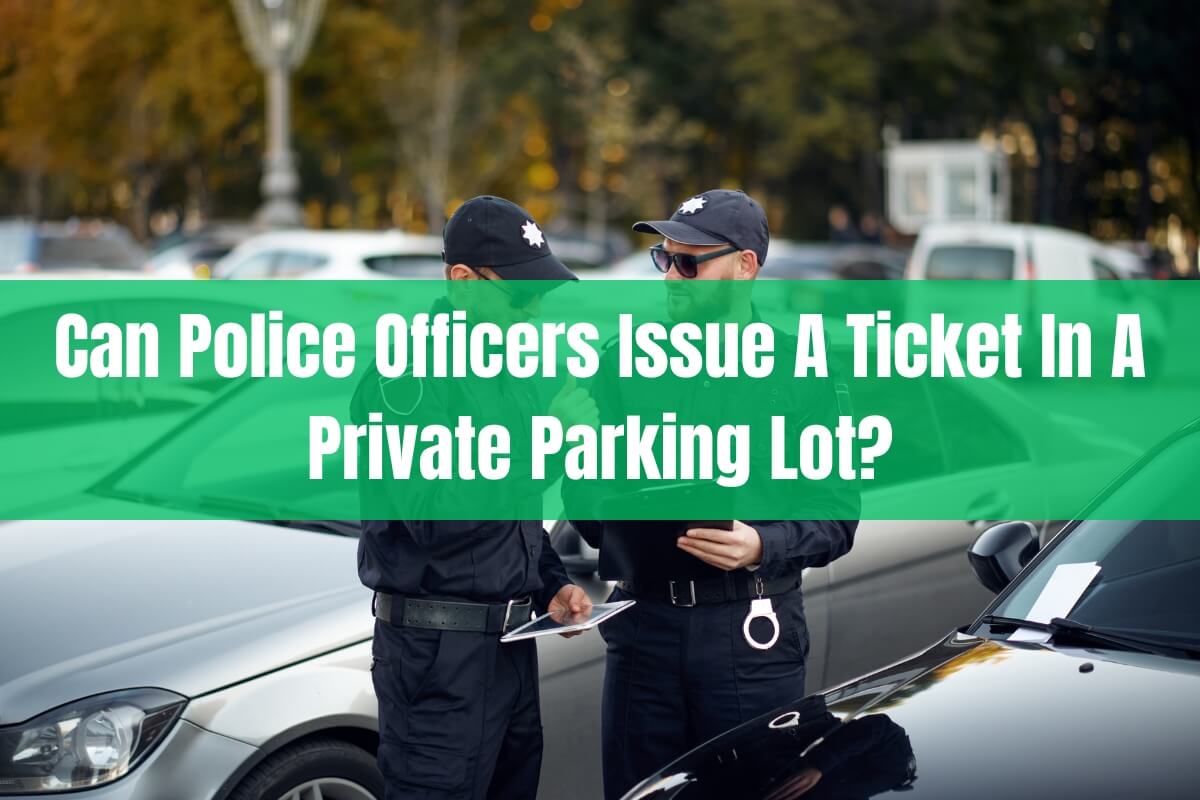

Getting a parking ticket can ruin anyone’s day. The annoying piece of paper slapped on your windshield means an upcoming fine and having to deal with paying the citation. But did you know that where you get the ticket also matters?
If a police officer gives you a citation while parked in a private lot, you may actually be able to get out of paying it!
This article will cover everything drivers need to know about the powers officers have on private property, when they can and can’t ticket you, and what to do if you get an improper citation.
Table of Contents
In general, police cannot enforce traffic laws and issue citations for violations that happen on private streets, parking lots, and other areas.
Their authority is limited to public roads and highways that are funded by taxpayer money. So a private parking lot or a driveway into a shopping mall is not within typical police jurisdiction.
However, there are some exceptions for criminal offenses like:
Police can conduct investigations and issue tickets for these violations anywhere, even if they happen in a private parking garage or on a private drive.
But for basic traffic rules like speed limits, stop signs, illegal parking, etc. officers usually can’t ticket drivers on private property without authorization.
While the above is the standard general rule, there are some key differences in state traffic laws on this issue. Several states allow police broader powers when it comes to issuing citations on private roads and parking areas.
So laws truly vary when it comes to traffic enforcement on non-public streets and parking areas.
Shopping center parking lots are one of the most common places drivers get questionable citations from police.
For basic violations like:
It depends on whether the property owner authorizes police to enforce traffic laws in their private lot. Some malls and chain stores permit it, while others don’t.
So officers may wrongly hand out tickets in a parking lot they don’t actually have jurisdiction over.
Similar confusion exists when it comes to apartment complex private roads and streets within gated communities.
In general, standard traffic rules cannot be enforced on these private streets used only by residents.
But sometimes apartment owners give local police authority to patrol and issue traffic citations. Other times no agreement exists and officers overstep their bounds.
The key is verifying whether public traffic enforcement is authorized on the specific private property in question.
Now that you know the rules, what if you actually get a parking or traffic ticket while on a private lot, road, or other area?
Don’t assume you have no choice but to pay up! There are options for contesting the citation, especially if the officer was out of their jurisdiction.
Caving and paying fines for invalid tickets given improperly on private property just invites more overreach.
With the right legal guidance, a ticket written outside of an officer’s jurisdiction doesn’t have to drag down your driving record or bank account.
But doing nothing about it means accepting liability and penalties for something you may not have deserved in the first place.
Understanding when police can and cannot issue traffic and parking tickets on private property helps drivers protect their rights.
If you get an improper citation, the right legal help can keep it from damaging your driving record or pocketbook. But ignoring it won’t make the problem go away.
Sarah brings over 10 years of customer service experience to her role at The Ticket Lover. She studied communications at Western Washington University, graduating in 2009. Post-college she worked in support roles for event venues and ticket marketplaces where she honed her ability to handle all sorts of ticket situations. Originally from Bellingham, Sarah still loves exploring the Pacific Northwest and going sailing in her free time. At The Ticket Lover, she draws on her breadth of ticket knowledge to educate readers and provide helpful recommendations.